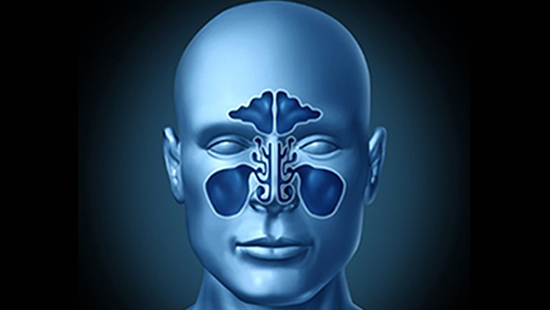
30 Jan Why Does My Tooth Hurt? Part 4: Sinusitis
As with everything, things are not always the way they appear with tooth pain. Sometimes, that nagging pain in your jaw or mouth may not have anything to do with your teeth after all. That dull uneasy ache in your upper teeth, especially in the back may be a sign of sinusitis, rather than a tooth, jaw or joint problem. Non-specific headache or a feeling of ‘heaviness” in your head may also be a sign of sinusitis, rather than a dental problem. Of course, it is always best to first eliminate the possible dental problems by visiting your dentist as sometimes these two problems can be present at the same time. Although not often, severe dental infections in the upper jaw can traverse into the sinus spaces and vice versa and obtaining the right treatment on time may be of crucial importance.
What is sinusitis?
Sinusitis is actually inflammation of the mucosal lining of the sinuses. Sinuses are actually hollow spaces filled with air that reside in your face and skull bones. This hollow spaces are lined with special mucosa, much like the inside of your nose. This spaces are connected to the cavities in your other bones or the inside of your nose. After a common cold, infections of the sinuses can ensue, causing pressure and pain in your face and upper jaw. Sinusitis can be either acute (sudden) or chronic (long-term). Usually, sinusitis starts as an acute problem that, if left untreated can turn into a long-term, chronic sinusitis that can last for more than 3-4 months or more. Chronic diseases, although milder in nature are typically more resistant to available treatment.
What causes sinusitis?
There are few factors that can cause this problem. Most common factors causing sinusitis are:
- Common cold viruses
- Bacteria
- Fungi
Viruses that cause the common cold usually are also responsible for the sinusitis problems. Therefore, it is not a god idea to ignore your cold. When the mucosal lining of the sinus cavities gets inflamed, it swells, sometimes really significantly, filling in the space of the sinus cavity. This in turn can block the normal draining from the sinuses into the nose and throat areas. The buildup of fluids, combined with the presence of bacteria or fungi, if left untreated, can in turn cause more swelling and build up. The bugs simply love that residual fluid. Once this ‘vicious” circle is established, the sinus problems may become worse, they can last longer or can turn into a chronic infection that is more difficult to treat. Nasal allergies or other problems that block the nasal passages and allow fluid to build up in the sinuses can also lead to sinusitis.
How to Detect It?
- dull ache in your upper back teeth
- headache
- coughing
- stuffy or runny nose, with some mucus
- fever
- pain in your teeth
- bad breath
- reduced sense of smell or taste
What to Do About It?
The dental exam can actually help in excluding other possible reasons for those symptoms, like abscessed tooth, cracked tooth, periodontitis or joint problems. Although dental x-rays are not intended for diagnosis of sinus problems, the maxillary (upper jaw) sinuses can sometimes be seen on dental x-ray. The panoramic x-rays (the big dental x-rays) typically show the maxillary sinuses in their entirety and suspicious appearance of these structures on the panoramic x-rays are sometimes a reason for the dentist to seek a consult from their medical colleagues to further investigate for possible sinus problems. In cases of chronic sinusitis, the symptoms may not be so obvious or pronounced and you learn to live with it. Therefore, a suspicious sinus appearance during a dental exam often leads to the first diagnosis of a sinus problem. Dentist often detect these issues and refer patients for further treatment. You may need to see your medical doctor or an ear nose throat (ENT) specialist, who will determine the cause and treat you.
Viral sinus infections usually go away on their own, it just takes about 10 to 14 days, as antibiotics typically don’t work for viral infections anyways.
Still, there are some things you can do at home to get rid of your symptoms:
- Drink plenty of fluids. Dehydration is a common complication, especially in children and older adults.
- Several times a day, wet a towel in hot water and put on your face several times a day, for about 5-10 minutes. You can also use a gel pack that is sold in stores specifically for this purpose. This helps relieve the pressure.
- Go under the shower, use hot bath or sink filled with hot, steamy water and breathe the warm and moist air.
- Use saline nose drops, sprays, as well as saline nasal washes.
- Buy some over the counter pain relievers, if needed. Use as instructed by the manufacturer or discuss with the pharmacist
Bottom line, sinusitis is a common non-dental problem that can sometimes mask as dental or orofacial issue. It is important to rule out and/or treat dental issues, as well as properly diagnose, treat sinusitis; or refer to a specialist for further treatment. At Imperial Dental Center, our experienced dental team led by Dr. Angelova is happy to provide you with the expertise and latest dental technological diagnostic tools available. In cases of suspected non-dental related sinusitis, Dr. Angelova will refer you and collaborate with the appropriate ear nose and throat specialist, in order to properly diagnose and treat your sinus problem.
Imperial Dental Center 281-265-3567

